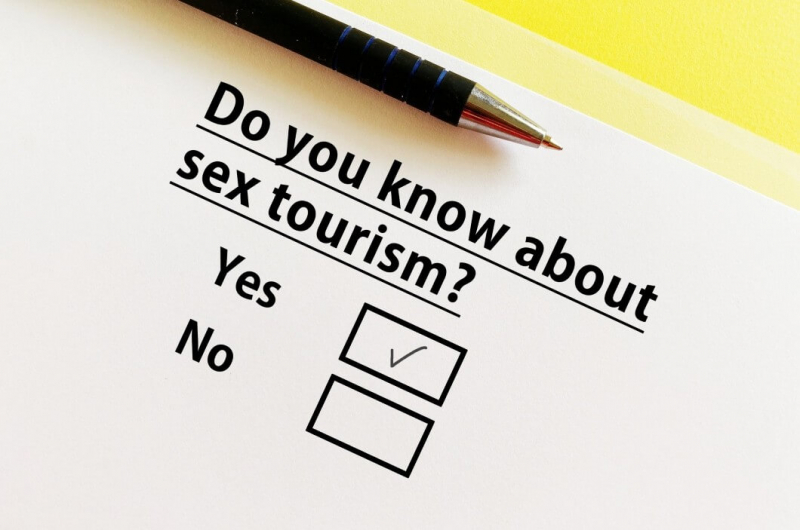Medellín, once synonymous with drug cartel activity, has experienced a remarkable transformation and now attracts visitors. The city, often called the City of Eternal Spring, hosts over 1.8 million international visitors annually and is a real example of reinvention. The city’s museums document its past, cable cars carry sightseers to revitalized neighborhoods, and festivals teem with innovation and salsa. However, this successful resurgence conceals a worrying problem: a growth in sex tourism, with some evidence indicating it targets minors.
In response, local and national officials are using technology, training, and strict measures to preserve the city’s true character.
From Cartel Capital to Global Getaway
Medellín’s growing popularity is certainly justified. Travelers are drawn by the local hiking, amazing street art, and coffee – which contribute billions of dollars to the economy and employ thousands. According to the city’s tourist board, visitor numbers have increased by 15% yearly, fueled by flights from Europe and North America. “We’ve put the past behind us,” says a local guide, which reflects the feelings of a city committed to eco-parks, hotels, and cultural experiences.
Unfortunately, certain individuals are taking advantage. According to advocacy groups and officials, some visitors – mainly from the U.S. and Europe – aren’t interested in the city’s art or local cuisine. Rather, they come to the city seeking illegal activities, where exploitation is frequent. According to information, in 2024, over 200 cases of child sexual exploitation linked to tourism were recorded in Medellín’s home region. There is a risk that the influx may diminish the city’s appeal.
Zero Tolerance Policy Towards Sex Tourism
Here come the city’s defenders. The Mayor’s Office of Medellín, together with Colombia’s Migration authority, has started a stringent operation. More than 50 foreigners considered as potential risks have been deported so far this year – this was revealed following a high-profile week at José María Córdova International Airport. Five tourists were refused entry in the first five days of November, their suitcases barely unpacked before they were sent back.
These aren’t arbitrary actions. The expulsions are a result of alerts for “tourism for the purpose of sexual exploitation,” which cause Migration Colombia officials to deny entry immediately. “This control is yielding results against potential offenders,” Paola Salazar, the agency’s regional director for Antioquia and Chocó, recently stated in an interview. Salazar attributes a multi-layered filter: cross-checks using international databases, tips from the U.S. Embassy, and keen immigration interviews.
Click here to preview your posts with PRO themes ››
The key lies in the staff’s high-level training. “They’re trained to notice personality traits or strange behaviors while asking about trip motivations,” Salazar mentions. Odd answers regarding lodging, uncertain travel plans, or inconsistent information can all raise suspicions. These assessments are aided by tech, which scans histories and biometrics in a matter of seconds.

A Technological Shield Against Predators
Angel Watch, a database supported by the U.S. and now considered as a key tool in Colombia’s defense, is incredibly important. This system compares incoming American visitors against records of convictions for crimes against children, identifying possible risks of sex tourism before they enter the country. It played a key role in deporting 42 such individuals in 2024. Salazar refers to it as “invaluable.”
Those who are denied entry encounter a lifetime ban, which ensures that offenders don’t return. Medellín, and other regions. Across hotspots like Bogotá, Barranquilla, even Cali, this initiative truly covers the nation. Salazar aptly notes, “The goal is to shield those most at risk while sustaining the tourism vital for our growth.” Expulsions follow set procedures, with reviews intended to address potential stigmas, like the traveler who claimed bias.
To further secure justice, the Mayor’s Office plans to provide interpreters for any deportation proceedings. The “I don’t speak Spanish” tactic will no longer work; professionals will ensure every accused individual understands the proceedings, thus streamlining justice.
Safeguarding a City’s Second Act
The situation in Medellín presents a real paradox. Around 1.8 million arrivals underscore an undeniable transformation – jobs, revenue, recognition. But unchecked exploitation might erode the gains, discouraging the families and cultural tourists who are actually crucial for sustainable expansion.
Local authorities are broadening their strategies. Community watch initiatives, training hotel staff to spot solicitation, and collaborations with platforms like Airbnb for flagging concerns are helping. International organizations like Interpol commend the approach, but emphasize that vigilance needs to evolve with threats, such as dark-web activity or shifting travel patterns.
As the year winds down, Medellín is clear about its position. For the travelers headed south, the message rings true – enjoy the experiences, but be aware of the monitoring. The victory of tourism here isn’t purely economic, it’s about ethics. And in this city that transformed itself, that’s something to protect.


